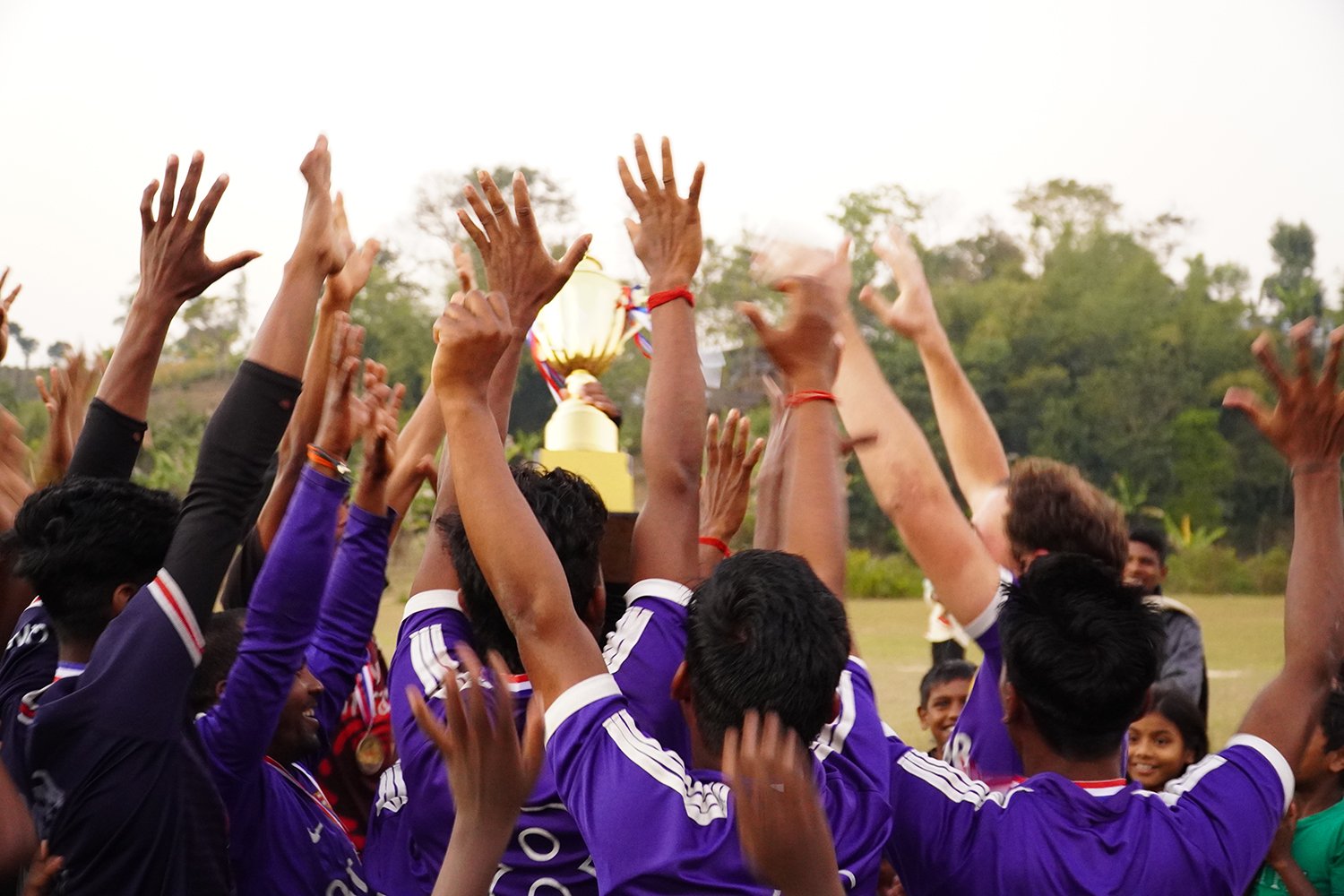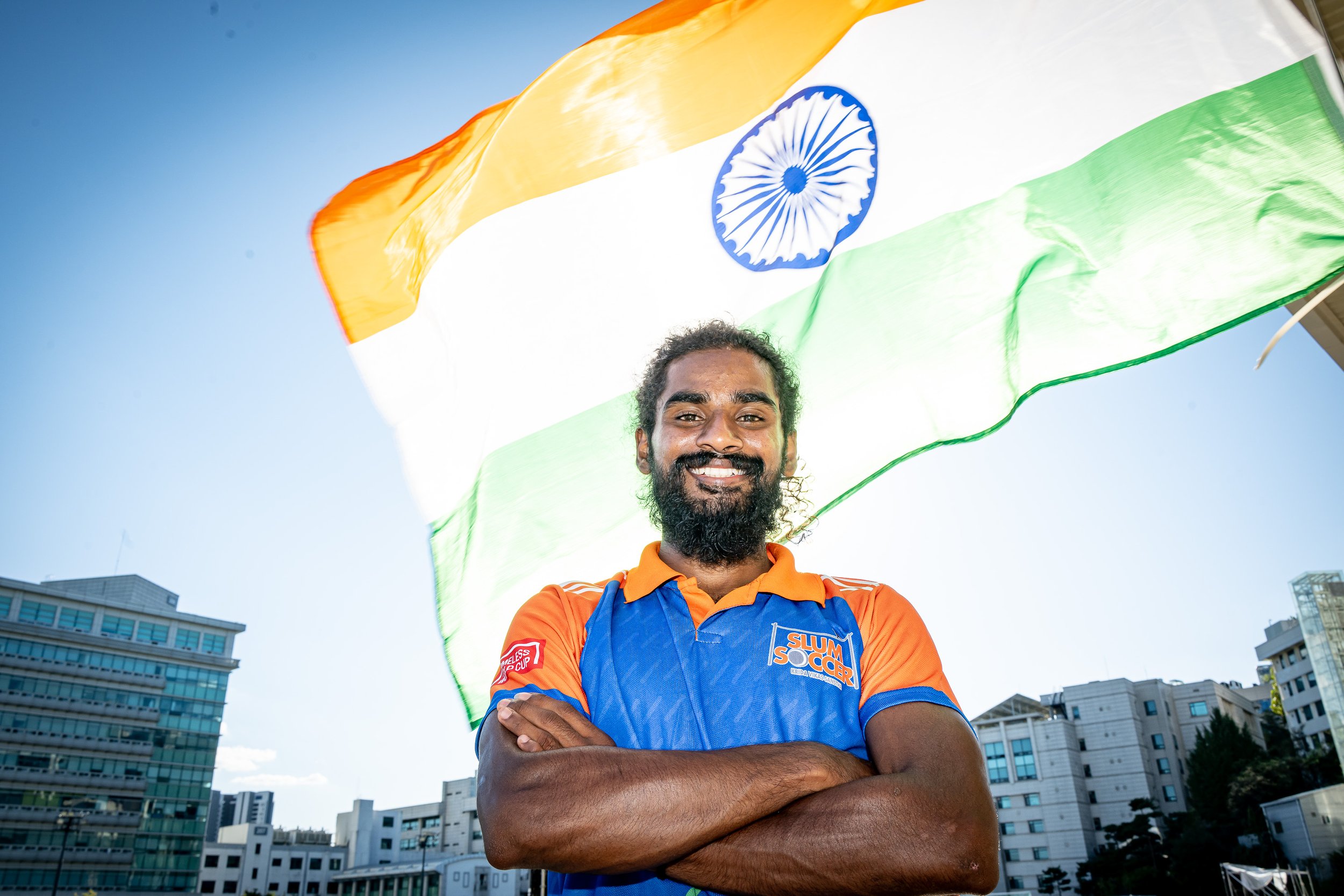
Bangladesh
Sports for Hope and Independence (SHI)
Sports for Hope and Independence (SHI) is a social service organisation founded in 2016. SHI focuses on social development, providing sports and recreational activities to people in the communities where they work. This gives them an opportunity to play and grow.
SHI use football to address and tackle different social issues such as child marriage, gender equality, child & youth development, inclusion of person with disabilities, climate action and economic development.
After visa issues stopped the team attending the Sacramento 2023 event, Bangladesh joined the tournament for the first time in Seoul 2024.
Country statistics
129 out of 193 countries in Human Development Index [HDI] rankings (UNDP, 2022)
$2,880 annual average salary (World Bank, 2023)
18.7% of population live below poverty line (World Bank, 2022)
The People’s Republic of Bangladesh in Southern Asia, between Burma and India, borders the Bay of Bengal and covers the delta region at the confluence of the Ganges and Brahmaputra rivers.
After the partition of India in 1947, the country was first the Pakistani province of East Bengal, then East Pakistan, before gaining independence in 1971.
With a population of 174.9 million it’s the 8th most populated country in the world (Worldometer, 2024) encompassing over 27 indigenous ethnic groups. After decades of political unrest and with the help of international development assistance, Bangladesh is on track to graduate from the UN’s Least Developed Countries (LDC) list in 2026 (CIA World Factbook, 2024).
The tropical climate with hot summers and a dramatic monsoon season sees frequent droughts and cyclones, with much of the population living on flood-prone land.
Its geography and high population make Bangladesh one of the world’s most disaster-prone countries [2023] with this the main trigger of displacement. Cyclone Mocha [the world’s largest weather-related disaster displacement event of 2023] formed in the Bay of Bengal, destroying 3,300 homes and displacing 30,000 people; and 284,888 people were displaced due to flooding in August 2024 (IDMC, 2023).
The country hosts over one million forcibly displaced Myanmar nationals (Rohingyas) - the largest settlement of refugees in the world - who fled military conflict in the 1970s, 1990s and to a greater extent in 2017 (UNHCR). The recent weather disasters affected these refugees disproportionately due to the fragile shelters and overcrowded living conditions.
Bangladesh has 1.8m internally displaced persons [Oxfam, 2024] following decades of conflict between the government and insurgent group Shanti Bahini in addition to weather disasters.
The country’s GDP is $437.42 billion equating to $1,804 per capita (World Bank, 2023) with 18.7% of the population living below the poverty line (World Bank, 2022). Over five million workers in the country’s garment industry - the lowest paid in this industry anywhere in the world - risk their safety on a daily basis - and 52% of the urban population live in slums (CIA World Factbook, 2020).
STORIES from the region










